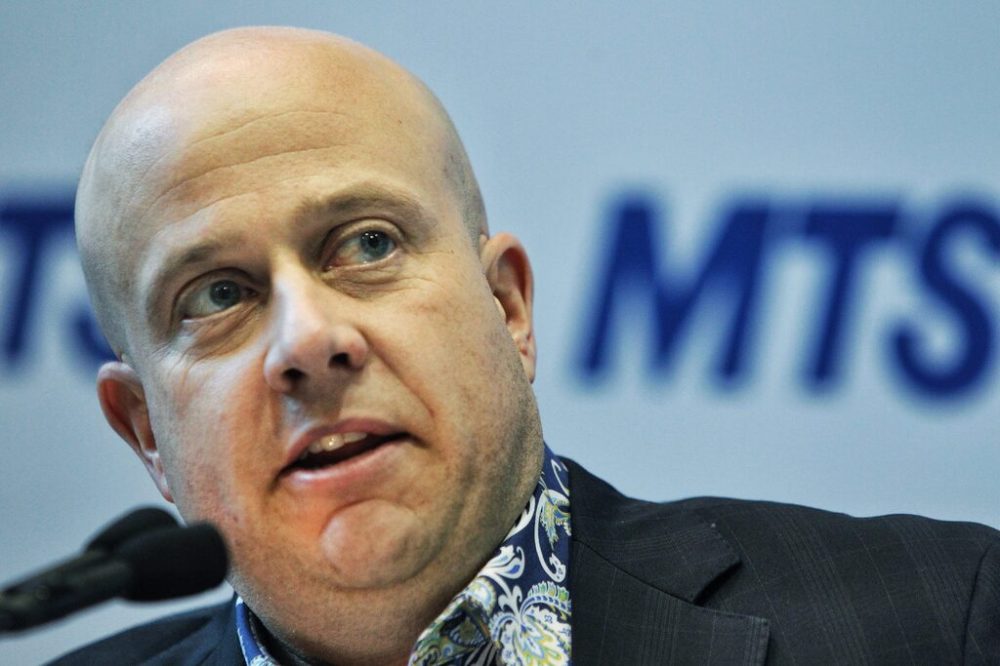Conflict confusion of interest to Manitobans
Read this article for free:
or
Already have an account? Log in here »
To continue reading, please subscribe:
Monthly Digital Subscription
$0 for the first 4 weeks*
- Enjoy unlimited reading on winnipegfreepress.com
- Read the E-Edition, our digital replica newspaper
- Access News Break, our award-winning app
- Play interactive puzzles
*No charge for 4 weeks then price increases to the regular rate of $19.00 plus GST every four weeks. Offer available to new and qualified returning subscribers only. Cancel any time.
Monthly Digital Subscription
$4.75/week*
- Enjoy unlimited reading on winnipegfreepress.com
- Read the E-Edition, our digital replica newspaper
- Access News Break, our award-winning app
- Play interactive puzzles
*Billed as $19 plus GST every four weeks. Cancel any time.
To continue reading, please subscribe:
Add Free Press access to your Brandon Sun subscription for only an additional
$1 for the first 4 weeks*
*Your next subscription payment will increase by $1.00 and you will be charged $16.99 plus GST for four weeks. After four weeks, your payment will increase to $23.99 plus GST every four weeks.
Read unlimited articles for free today:
or
Already have an account? Log in here »
Hey there, time traveller!
This article was published 01/03/2021 (1747 days ago), so information in it may no longer be current.
Was Paul Beauregard guilty of a conflict of interest?
That is the question left hanging in the air following a remarkable week of disclosures, allegations and counter-allegations.
The Manitoba NDP claims Beauregard, former secretary to the Treasury Board, had improperly interceded in the awarding of a contract to his former employer, Bell MTS.

The party and MLA Adrien Sala devoted a considerable amount of time in 2020 pursuing such allegations against Beauregard who, in turn, filed a complaint against the official Opposition under the legislature’s Respectful Workplace Policy.
It seemed like a long shot to use a policy designed to protect against sexual harassment and bullying to quiet opposition critics. But in late February, Beauregard (who left Treasury Board but remains on contract to help with Manitoba’s reorganization of the health-care system) released a letter claiming his complaint had been upheld.
Beauregard would not release a copy of the investigator’s report, but claimed Sala was guilty of “disseminating false or alternatively misleading information.” It also found “a repeated pattern of harassment and bullying and a severe form of disrespectful behaviour.”
To further address the conflict of interest allegations, Beauregard provided letters from Charlene Pacquin, head of the Manitoba Civil Service Commission, and Fred Meier, former clerk of the executive council.
Pacquin and Meier both admitted they had not investigated the specific NDP claims. Yet, remarkably, both concluded there was nothing in Manitoba law which required Beauregard to recuse himself from any business involving Bell MTS.
Seems like an open-and-shut case — except Pacquin and Meier had provided answers to what was, in fact, a trick question.
Beauregard had not violated any law because Manitoba’s conflict-of-interest laws are arguably the narrowest and weakest in the country.
Jeff Schnoor, Manitoba conflict of interest commissioner, reviewed the Legislative Assembly and Executive Council Conflict of Interest Act and found it to be lacking in almost all regards.
“In broad terms,” Schnoor wrote to the current government, “the current act defines conflict of interest too narrowly, requires inadequate disclosure of assets and liabilities, and provides an ineffective method of enforcement of obligations.”
There are almost too many problems in the current law to cite them all, but there are a few that are material to this case.
There is no definition of conflict of interest in the current act. The only time the words “conflict of interest” appear is in the title; there isn’t a single other reference in the body of the law.
The law is only really concerned about “pecuniary” interests, which is legalese for a direct financial interest in an individual or company doing business with government. There is nothing in Manitoba law to prevent a senior bureaucrat or elected official from furnishing favours for political or business friends doing business with government.
It’s hardly surprising Beauregard wasn’t found to be in a conflict of interest under the terms of this law. That does not mean, however, that there was no conflict of interest.
Beauregard was employed by Bell MTS and its predecessors in an executive capacity for 13 years before joining the PC government in 2017.
In 2020, Beauregard directed Manitoba Hydro to stop one of its subsidiaries from bidding on a lucrative government data network contract that had been held by Bell MTS, but which had expired.
Beauregard’s involvement in the data network contract was unusual for a number of reasons.
First, because Treasury Board secretaries do not normally supersede departmental deputy ministers to direct the awarding of a contract. However, emboldened by a closer-than-usual relationship with Premier Brian Pallister, Beauregard exerted a level of influence over the operations of government well-beyond the terms of his position.
It was also unusual because Pallister publicly acknowledged in 2017 Beauregard would not be involved in any business with Bell MTS to avoid the perception of a conflict of interest. Beauregard had previously recused himself from a contract for a new emergency measures communication system that involved Bell MTS.
The irony of ironies in this bitter political story is the Pallister government currently has a bill before the legislature that would significantly bolster Manitoba’s conflict of interest provisions — and, in so doing, put the allegations against Beauregard in a new light.
The amending legislation significantly expands the definition beyond pecuniary interests to include any action that could “improperly further another person’s private interests.” It not only brings Manitoba closer to the standards in other provinces, but also makes a case for a re-examination of both the original allegations against Beauregard and his harassment complaint.
There is one final irony: the new and improved conflict of interest law might have been passed last year, before Beauregard made his harassment complaint, if not for a decision by the NDP to stall legislation to protest budget measures.
The new law will be good for all involved. But it could not arrive in time to save Manitobans from witnessing a truly woeful tale of rampant political self-interest and a complete lack of accountability.
Well done everyone.
dan.lett@freepress.mb.ca

Born and raised in and around Toronto, Dan Lett came to Winnipeg in 1986, less than a year out of journalism school with a lifelong dream to be a newspaper reporter.
Our newsroom depends on a growing audience of readers to power our journalism. If you are not a paid reader, please consider becoming a subscriber.
Our newsroom depends on its audience of readers to power our journalism. Thank you for your support.
History
Updated on Monday, March 1, 2021 8:06 PM CST: Fixes typo.








